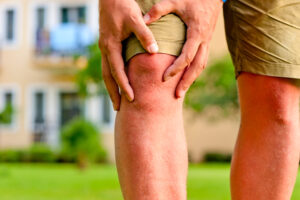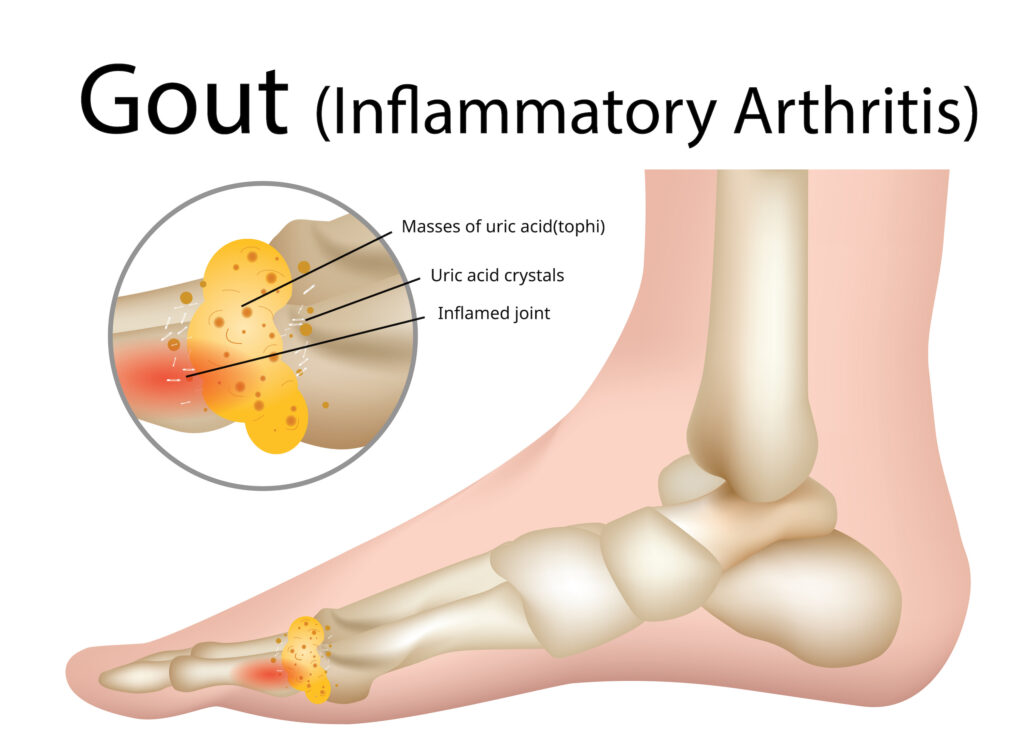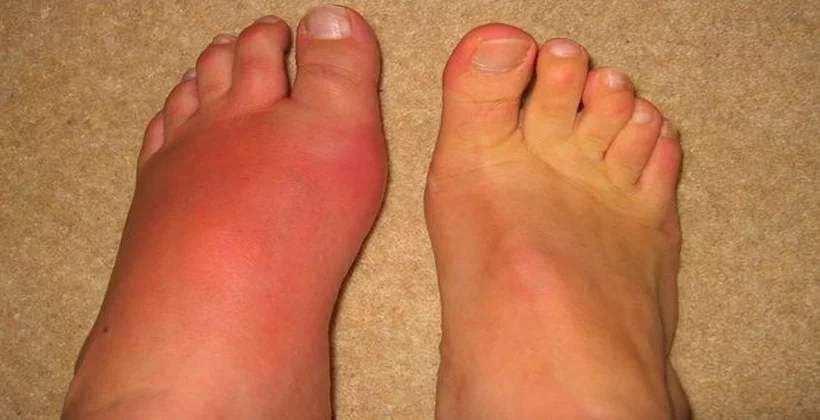Arthritis is a debilitating and painful set of conditions that affects more than 700,000 people in New Zealand. If we haven’t got it, someone really close to us does.
What is arthritis?
Arthritis is a term used for more than 140 conditions that affect the joints. Pain and stiffness are the most common symptoms.
Arthritis can involve almost any part of the body, most often the knee, hip, spine and other weight-bearing joints, but also smaller joints like fingers and toes. Some types of arthritis affect the skin and internal organs as well as joints.

People of all ages can get arthritis, including infants, although it is more common as we age. It is a chronic condition with no cure, however it is possible to manage arthritis effectively.
In New Zealand, the most common types of arthritis among men are gout arthritis and osteoarthritis, and men are at a higher risk of developing arthritis at an earlier age than women.
Gout arthritis is the second most common form of arthritis in New Zealand and more prevalent here than anywhere else in the world. Māori and Pasifika people are particularly affected, mainly due to genetic factors.
Gout arthritis causes sudden attacks of severe pain and swelling in the joints, usually starting in the big toe. If left untreated, more attacks may occur and spread to other joints such as knees, elbows, wrists and fingers. Gout arthritis can damage joints and kidneys.


Gout attacks happen when there is too much uric acid in your blood. Uric acid is produced when proteins called purines are metabolised from food, and most of it usually passes out of the body in your urine.
Uric acid can build up in your blood if you are overweight, take certain medicines, eat foods containing purines, or have kidney problems. The uric acid turns to sharp, needle-shaped crystals that cause pain and swelling in the joints and can damage cartilage. Crystals under the skin cause lumps called ‘tophi’, while crystals in the kidneys can lead to kidney stones.
People often think that gout arthritis is caused by overeating and drinking too much alcohol but this is only part of the whole story. The main reason for high uric acid levels in your blood is because your body cannot get rid of it properly. This could be because of your genes, weight or existing kidney problems.
How can I manage my gout arthritis?
You do not need to put up with the pain of gout attacks. By watching what you eat and drink and taking medications every day, you can control gout arthritis and prevent damage to your joints and kidneys.
Medication
There are two types of medicine for gout arthritis – those that bring your uric acid levels down and those that treat gout attacks. Uric acid medicines should be taken every day, even when you do not have a gout attack.
Gout attack medicines relieve the pain and swelling, but they do not treat gout arthritis itself. Non-steroidal anti-inflammatory drugs (NSAIDS) such as naproxen, diclofenac (Voltaren) and ibuprofen should only be used for a short time because they can cause side-effects such as stomach problems, skin rash, and kidney and heart problems.
Joint protection
Gout attacks are extremely painful – even the pressure of sheets and blankets can be agonising. Sit where people won’t bump into you and put something under the bedcovers to lift them off your sore joints. Try an ice pack and keep the painful joint raised.
Do not exercise during a gout attack but rest until your symptoms improve.
Healthy eating
If you are overweight, losing a few kilograms gradually is the most effective treatment for gout arthritis. Avoiding some foods will help lower the level of uric acid in your blood and prevent gout attacks. You may find particular foods trigger a gout attack but this is different for everyone.
- Eat three meals a day – starving or feasting can bring on a gout attack.
- Eat less chicken, meat and seafood – these foods contain high levels of purines.
- Enjoy low-fat dairy foods, fruit and vegetables every day.
- Drink less alcohol – beer is most likely to cause gout attacks as it contains more purines than other forms of alcohol.
- Drink plenty of water (6 to 8 cups a day) and avoid sugary drinks.
Footwear
Gout in the feet can make it hard for you to walk or wear shoes. Sandals, jandals, slippers or old shoes do not support your feet well and can affect your balance. The right footwear will be comfortable and help prevent further joint damage.
Support
Make sure you and your whānau/family know what to do if you have a gout attack and talk to them about how they can support you to get enough exercise and eat foods that will prevent gout arthritis. Encourage others to get treatment too if they have signs of gout because it might run in your family. Your doctor will help you make a plan to manage your gout well by taking regular blood tests and monitoring your medication. By working together, you can beat gout arthritis and prevent unnecessary suffering for yourself or your family.
Don’t suffer in silence
Unfortunately, many men suffer in silence, not realising that resources are available to help them manage and cope with arthritis. Arthritis NZ is an organisation that can provide support and services to men with arthritis.
The organisation provides various services and resources to help individuals manage their arthritis. Arthritis NZ’s service is called Arthritis Assist, which is a team of individuals who are available to answer questions and provide support to people living with arthritis.
Arthritis Assist can also provide Fact Sheets on specific types of arthritis, video resources and even a website-based platform dedicated to helping people manage osteoarthritis called MyJointPain (www.myjointpain.co.nz ). The organisation also offers educational sessions to help people better understand their arthritis and how to manage it. These sessions can be in-person group sessions, one-on-one phone support, or online depending on availability, demand and funding available.
The organisation offers support groups and workshops that are specifically designed for men with arthritis, in particular, gout arthritis and osteoarthritis. These groups provide a space for men to share their experiences and learn from others living with the condition.
Arthritis NZ also offers a range of resources online (on the website and YouTube channel) covering different types of arthritis, including gout arthritis, osteoarthritis, and inflammatory arthritis (such as ankylosing spondylitis and psoriatic arthritis). These resources also cover exercise, nutrition, mental health and wellbeing and much more.
If you are a man living with arthritis, even gout arthritis, knowing that you are not alone is essential. From support groups to education and pain management resources, Arthritis NZ provides support and guidance every step of the way. Don’t suffer in silence – reach out to Arthritis NZ today and start living your best life with arthritis.


